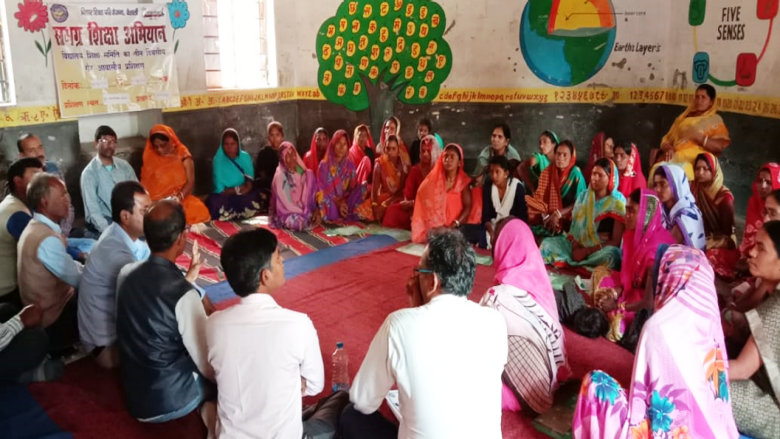Project Approved: 19-May-2015; Effective: 01-Sep-2015; Closing: 30-Jun-2020
Commitment Amount (revised after project restructuring in April 2019): $159.6 million
Disbursed: 66.1%
Project Context:
Bihar is still grappling with significant challenges in improving the quality of education. National assessments have shown that Bihar stands second from the bottom in the list of states in students’ learning achievement both in Languages and Mathematics.
International evidence suggests that once children enter school, the single most important determinant of learning is the performance of teachers. While Bihar has significantly increased the recruitment of teachers, thus reducing the critical pupil-teacher ratio, learning outcomes will depend upon the systems put into place for developing high quality teachers. The recent expansion in the number of teachers, compounded by decades of underinvestment in teacher programs, has led to a teaching workforce characterized by low academic content, ineffectual teaching practices, high levels of absenteeism, and weak monitoring and governance arrangements.
The World Bank-supported Enhancing Teacher Effectiveness in Bihar Project seeks to improve the effectiveness of elementary school teachers by ensuring that the state’s Teacher Education Institutions (TEI) are better equipped to train teachers and make them more effective in imparting learning to students. It will also help the state government develop an effective teacher management system with a robust monitoring and evaluation mechanism.
The Project provides $145 million under the Program for Results (PforR) instrument which allows the GoB to incentivize better teacher behavior and performance. It also consists of a $14.6 million Technical Assistance (TA) to build the capacities of the agencies implementing the teacher training program.
Progress:
The GoB has trained more than 11,000 unqualified elementary school teachers through open and distance learning so that they can be duly certified and coferred with a Diploma in Elementary Education. A strategy for the continuous professional development of its teacher educators has also been developed.
A mobile-based app called BEST has been developed to record the attendance of teachers across schools. In addition, a recently launched School Score Card application makes it possible for School Management Committees (comprising of parents, teachers, students, self-help group representatives, and a representative from a Panchayati Raj Institution) to easily track educational outcomes. Communities can track the quality of their schools through 22 simple observations using traffic light symbols (green for very good, amber for satisfactory, red for needs-improvement). Finally, upgradation of infrastructure of 93 TEIs is now complete, and work on upgrading a further 100 TEIs is underway.
Next Steps:
Despite the progress, several of the Project’s identified targets have been delayed, and are unlikely to be met by the Project’s slated closing date of June 2020. At the Bihar State Educational Infrastructure Development Corporation there have been significant delays in the implementation of a Teacher Management Information System and an Enterprise Resource Planning system. Financial management in the project also remains unsatisfactory. Significant vacancies still exist across several TEIs.
The World Bank has identified some key pending actions that include:
- Filling the vacancies of teacher educators at all TEIs
- Preparing an operations and maintenance policy for TEIs
- Strengthening the existing grievance redressal mechanism through digitization and a policy
- The State Council of Educational Research And Training to draft an ‘outreach action plan’ to reach potential teacher aspirants, especially among rural and vulnerable communities
- Improvng the status of financial management, especially at the Bihar State Educational Infrastructure Development Corporation
Considering the limited time until the closure of the Project, the Government of India has requested the World Bank to reduce the scope of some of the activities, adjust result targets, and cancel 36 percent of the committed loan amount. The World Bank has accepted this request.
